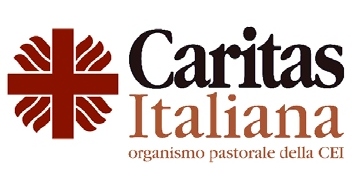This morning in the Vatican, Benedict XVI received participants in a meeting organised by Italian Caritas to celebrate its fortieth anniversary. In his address, the Pope recalled how Caritas “has an important role to play in educating communities, families and civil society, where the Church is called to shed her light. This involves taking responsibility for educating people to the good life of the Gospel, and that life is good only if it includes the witness of charity”.
“Never abandon this educational role, even when the journey becomes difficult and your efforts seem to bear no fruit. Undertake your duties while remaining faithful to the Church and respecting the identity of your institutions, using the instruments that history has given you and those which ‘the inventiveness of charity’ – as Blessed John Paul II said – will suggest to you in the future”.
“A work of charity speaks of God, it announces a hope and induces us to ask questions”. Such works “are born of the faith. They are works of the Church, expressions of her concern for those who suffer most. They are educational acts because they help the poor to grow in dignity, Christian communities to follow Christ and civil society to shoulder its obligations.
Let us recall the teaching of Vatican Council II: ‘demands of justice [must] be satisfied lest the giving of what is due in justice be represented as the offering of a charitable gift’. The Church’s humble and concrete service does not seek to substitute, even less to assuage, collective and civil conscience, but accompanies them with a spirit of sincere collaboration, and with due concern for autonomy and subsidiarity”.
“Charity requires an open mind”, the Holy Father went on. “Responding to need means not only giving bread to the hungry, but also asking ourselves about the reasons for their hunger, using the gaze of Jesus Who could see the profound truth of the people around Him. In this perspective, our modern times are calling you to ask yourselves about the way you work for charity.
Our thoughts cannot but go to the vast world of migration. Natural calamities and wars often create emergencies. The global economic crisis is a another sign of the times which calls for the courage of fraternity. The gap between the north and south of the world, and the wounded human dignity of so many people, call for a charity able to expand in concentric circles from the small economic systems to the great. Increasing poverty, the weakening of families, and the uncertainty faced by the young all point to the risk of diminishing hope.
“Humankind needs not only benefactors”, the Pope added, “but also humble practical people who, like Jesus, stand alongside their brothers and sisters and share their fatigue. In a word, humanity is looking for signs of hope. The source of our hope is in the Lord. This is why we need Caritas, not to delegate it with the responsibility for charitable service, but for it to be a sign of Christ’s charity, a sign that brings hope”.
VATICAN CITY, 24 NOV 2011 (VIS)





